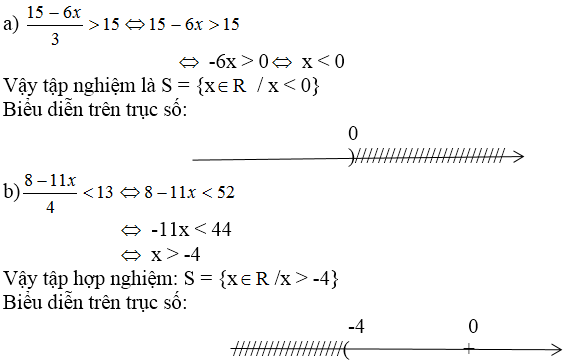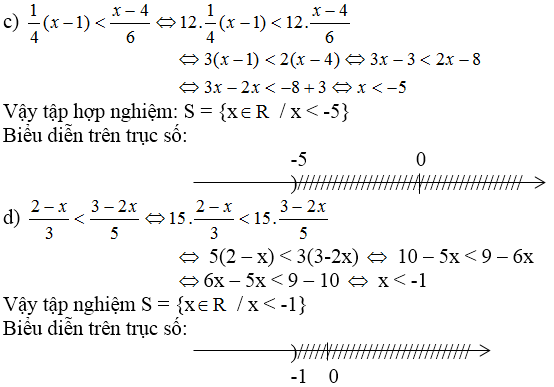Hãy nhập câu hỏi của bạn vào đây, nếu là tài khoản VIP, bạn sẽ được ưu tiên trả lời.

Theo đề bài ta có :
\(\frac{x\left(3-x\right)}{x+1}\cdot\left(x+\frac{\left(3-x\right)}{x+1}\right)=2\)
=> \(\frac{\left(3x-x^2\right)}{x+1}\cdot\frac{\left(3-x+x^2+x\right)}{x+1}=2\)
=> \(\left(3x-x^2\right)\left(x^2+3\right)=2\left(x+1\right)^2\)
=> \(3x^3+9x-x^4-3x^2=2x^2+4x+2\)
=> \(3x^3+\left(9x-4x\right)+\left(-3x^2-2x^2\right)-x^4-2=0\)
=> \(3x^3+5x-5x^2-x^4-2=0\)
=> \(5x\left(1-x\right)+x^3\left(1-x\right)+2\left(x^3-1\right)=0\)
=> \(5x\left(1-x\right)+x^3\left(1-x\right)+2\left(x-1\right)\left(x^2+x+1\right)=0\)
=> \(5x\left(1-x\right)+x^3\left(1-x\right)-2\left(1-x\right)\left(x^2+x+1\right)=0\)
=> \(\left(1-x\right)\left(5x+x^3-2x^2-2x-2\right)=0\)
=> \(\left(1-x\right)\left(3x+x^3-2x^2-2\right)=0\)
=> \(\left(1-x\right)\left(x^3-x^2-x^2+x+2x-2\right)=0\)
=> \(\left(1-x\right)\left(x^2\left(x-1\right)-x\left(x-1\right)+2\left(x-1\right)\right)=0\)
=> \(\left(1-x\right)\left(x-1\right)\left(x^2-x+2\right)=0\)
Ta Thấy :
\(\left(x^2-x+2\right)=\left(x-\frac{1}{2}\right)^2+\frac{7}{4}>0\)
=> \(\hept{\begin{cases}1-x=0\\x-1=0\end{cases}}\)
=> x = 1

a: =>-12x>12
hay x<-1
b: =>7(3x-1)-252>=21x+3(6x+1)
=>21x-7-252>=21x+18x+3
=>18x+3<=-259
=>18x<=-262
hay x<=-131/9
c: =>3(3x+5)-24x<=48+4(x+8)
=>9x+15-24x<=48+4x+32=4x+80
=>-15x+24<=4x+80
=>-19x<=56
hay x>=-56/19

giải pt sau
g) 11+8x-3=5x-3+x
\(\Leftrightarrow\) 8x + 8 = 6x - 3
<=> 8x-6x = -3 - 8
<=> 2x = -11
=> x=-\(\dfrac{11}{2}\)
Vậy tập nghiệm của PT là : S={\(-\dfrac{11}{2}\)}
h)4-2x+15=9x+4-2x
<=> 19 - 2x = 7x + 4
<=> -2x - 7x = 4 - 19
<=> -9x = -15
=> x=\(\dfrac{15}{9}=\dfrac{5}{3}\)
Vậy tập nghiệm của pt là : S={\(\dfrac{5}{3}\)}
g)\(\dfrac{3x+2}{2}-\dfrac{3x+1}{6}=\dfrac{5}{3}+2x\)
<=> \(\dfrac{3\left(3x+2\right)}{6}-\dfrac{3x+1}{6}=\dfrac{5.2+6.2x}{6}\)
<=> 9x + 6 - 3x + 1 = 10 + 12x
<=> 6x + 7 = 10 + 12x
<=> 6x -12x = 10-7
<=> -6x = 3
=> x= \(-\dfrac{1}{2}\)
Vậy tập nghiệm của PT là : S={\(-\dfrac{1}{2}\)}
\(h,\dfrac{x+4}{5}-x+4=\dfrac{4x+2}{5}-5\)
<=> \(\dfrac{x+4-5\left(x+4\right)}{5}=\dfrac{4x+2-5.5}{5}\)
<=> x + 4 - 5x - 20 = 4x + 2 - 25
<=> x - 5x - 4x = 2-25-4+20
<=> -8x = -7
=> x= \(\dfrac{7}{8}\)
Vậy tập nghiệm của PT là S={\(\dfrac{7}{8}\)}
\(i,\dfrac{4x+3}{5}-\dfrac{6x-2}{7}=\dfrac{5x+4}{3}+3\)
<=> \(\dfrac{21\left(4x+3\right)}{105}\)-\(\dfrac{15\left(6x-2\right)}{105}\)=\(\dfrac{35\left(5x+4\right)+3.105}{105}\)
<=> 84x + 63 - 90x + 30 = 175x + 140 + 315
<=> 84x - 90x - 175x = 140 + 315 - 63 - 30
<=> -181x = 362
=> x = -2
Vậy tập nghiệm của PT là : S={-2}
K) \(\dfrac{5x+2}{6}-\dfrac{8x-1}{3}=\dfrac{4x+2}{5}-5\)
<=> \(\dfrac{5\left(5x+2\right)}{30}-\dfrac{10\left(8x-1\right)}{30}=\dfrac{6\left(4x+2\right)-150}{30}\)
<=> 25x + 10 - 80x - 10 = 24x + 12 - 150
<=> -55x = 24x - 138
<=> -55x - 24x = -138
=> -79x = -138
=> x=\(\dfrac{138}{79}\)
Vậy tập nghiệm của PT là S={\(\dfrac{138}{79}\)}
m) \(\dfrac{2x-1}{5}-\dfrac{x-2}{3}=\dfrac{x+7}{15}\)
<=> \(\dfrac{3\left(2x-1\right)-5\left(x-2\right)}{15}=\dfrac{x+7}{15}\)
<=> 6x - 3 - 5x + 10 = x+7
<=> x + 7 = x+7
<=> 0x = 0
=> PT vô nghiệm
Vậy S=\(\varnothing\)
n)\(\dfrac{1}{4}\left(x+3\right)=3-\dfrac{1}{2}\left(x+1\right)-\dfrac{1}{3}\left(x+2\right)\)
<=> \(\dfrac{1}{4}x+\dfrac{3}{4}=3-\dfrac{1}{2}x-\dfrac{1}{2}-\dfrac{1}{3}x-\dfrac{2}{3}\)
<=> \(\dfrac{1}{4}x+\dfrac{1}{2}x+\dfrac{1}{3}x=3-\dfrac{1}{2}-\dfrac{2}{3}-\dfrac{3}{4}\)
<=> \(\dfrac{13}{12}x=\dfrac{13}{12}\)
=> x= 1
Vậy S={1}
p) \(\dfrac{x}{3}-\dfrac{2x+1}{6}=\dfrac{x}{6}-6\)
<=> \(\dfrac{2x-2x+1}{6}=\dfrac{x-36}{6}\)
<=> 2x -2x + 1= x-36
<=> 2x-2x-x = -37
=> x = 37
Vậy S={37}
q) \(\dfrac{2+x}{5}-0,5x=\dfrac{1-2x}{4}+0,25\)
<=> \(\dfrac{4\left(2+x\right)-20.0,5x}{20}=\dfrac{5\left(1-2x\right)+20.0,25}{20}\)
<=> 8 + 4x - 10x = 5 - 10x + 5
<=> 4x-10x + 10x = 5+5-8
<=> 4x = 2
=> x= \(\dfrac{1}{2}\)
Vậy S={\(\dfrac{1}{2}\)}
g) \(11+8x-3=5x-3+x\)
\(\Leftrightarrow8+8x=6x-3\)
\(\Leftrightarrow8x-6x=-3-8\)
\(\Leftrightarrow2x=-11\)
\(\Leftrightarrow x=-\dfrac{11}{2}\)
h, \(4-2x+15=9x+4-2x\)
\(\Leftrightarrow-2x-9x+2x=4-4-15\)
\(\Leftrightarrow-9x=-15\)
\(\Leftrightarrow x=\dfrac{-15}{-9}=\dfrac{5}{3}\)


a) ĐKXĐ: x khác 0
\(x+\dfrac{5}{x}>0\)
\(\Leftrightarrow x^2+5>0\) ( luôn đúng)
Vậy bất pt vô số nghiệm ( loại x = 0)
d)
\(\dfrac{x+1}{12}-\dfrac{x-1}{6}>\dfrac{x-2}{8}-\dfrac{x+3}{8}\)
\(\Leftrightarrow\dfrac{x+1}{12}-\dfrac{x-1}{6}>\dfrac{x-2-x-3}{8}\)
\(\Leftrightarrow\dfrac{x+1}{12}-\dfrac{x-1}{6}>\dfrac{-5}{8}\)
\(\Leftrightarrow2x+2-4x+4>-15\)
\(\Leftrightarrow-2x>-21\)
\(\Leftrightarrow x< \dfrac{21}{2}\)
Vậy....................
a)\(x+\dfrac{5}{x}>0\left(ĐKXĐ:x\ne0\right)\)
\(\Leftrightarrow\dfrac{x^2+5}{x}>0\)
Mà \(x^2+5>0\)
\(\Rightarrow x>0\)
d)\(\dfrac{x+1}{12}-\dfrac{x-1}{6}>\dfrac{x-2}{8}-\dfrac{x+3}{8}\)
\(\Leftrightarrow\dfrac{x+1}{12}-\dfrac{2x-2}{12}>\dfrac{-5}{8}\)
\(\Leftrightarrow\dfrac{-x+3}{12}>\dfrac{-5}{8}\)
\(\Leftrightarrow-x+3>-\dfrac{15}{2}\)
\(\Leftrightarrow-x>-\dfrac{21}{2}\)
\(\Leftrightarrow x< \dfrac{21}{2}\)

bài 1:
b,\(\dfrac{x+2}{x}=\dfrac{x^2+5x+4}{x^2+2x}+\dfrac{x}{x+2}\)(ĐKXĐ:x ≠0,x≠-2)
<=>\(\dfrac{\left(x+2\right)^2}{x\left(x+2\right)}=\dfrac{x^2+5x+4}{x\left(x+2\right)}+\dfrac{x^2}{x\left(x+2\right)}\)
=>\(x^2+4x+4=x^2+5x+4+x^2\)
<=>\(x^2-x^2-x^2+4x-5x+4-4=0\)
<=>\(-x^2-x=0< =>-x\left(x+1\right)=0< =>\left[{}\begin{matrix}x=0\left(loại\right)\\x+1=0< =>x=-1\left(nhận\right)\end{matrix}\right.\)
vậy...............
d,\(\left(x+3\right)^2-25=0< =>\left(x+3-5\right)\left(x+3+5\right)=0< =>\left(x-2\right)\left(x+8\right)=0< =>\left[{}\begin{matrix}x-2=0\\x+8=0\end{matrix}\right.< =>\left[{}\begin{matrix}x=2\\x=-8\end{matrix}\right.\)
vậy............
bài 3:
g,\(\dfrac{4}{x+1}-\dfrac{2}{x-2}=\dfrac{x+3}{x^2-x-2}\)(ĐKXĐ:x khác -1,x khác 2)
<=>\(\dfrac{4}{x+1}-\dfrac{2}{x-2}=\dfrac{x+3}{x^2-2x+x-2}\)
<=>\(\dfrac{4}{x+1}-\dfrac{2}{x-2}=\dfrac{x+3}{x\left(x-2\right)+\left(x-2\right)}\)
<=>\(\dfrac{4}{x+1}-\dfrac{2}{x-2}=\dfrac{x+3}{\left(x+1\right)\left(x-2\right)}\)
<=>\(\dfrac{4\left(x-2\right)}{\left(x+1\right)\left(x-2\right)}-\dfrac{2\left(x+1\right)}{\left(x+1\right)\left(x-2\right)}=\dfrac{x+3}{\left(x+1\right)\left(x-2\right)}\)
=>\(4x-8-2x-2=x+3\)
<=>\(x=13\)
vậy..............
mấy ý khác bạn làm tương tụ nhé
chúc bạn học tốt ^ ^

Bạn nhân 2 cả 3 câu rồi phân tích ra hằng đẳng thức là được

1.
|x-9|=2x+5
x<9; x-9=-2x-5
3x=4=>x=4/3(n)
x≥9; x-9=2x+5=> x=-14(l)
2.a
A=2x-5≥0<=>2x≥5; x≥5/2
1. a) / x - 9 / = 2x + 5
Do : / x - 9 / ≥ 0 ∀x
⇒2x + 5 ≥ 0
⇔ x ≥ \(\dfrac{-5}{2}\)
Bình phương cả hai vế của phương trình , ta được :
( x - 9)2 = ( 2x + 5)2
⇔ ( x - 9)2 - ( 2x + 5)2 = 0
⇔ ( x - 9 - 2x - 5)( x - 9 + 2x + 5) = 0
⇔ ( - x - 14)( 3x - 4) = 0
⇔ x = - 14 ( KTM) hoặc : x = \(\dfrac{4}{3}\) ( TM)
KL....
b) Mạn phép làm luôn , ko chép lại đề :
\(\dfrac{5\left(x+3\right)}{\left(x-3\right)\left(x+3\right)}+\dfrac{4\left(x-3\right)}{\left(x+3\right)\left(x-3\right)}=\dfrac{x-5}{\left(x-3\right)\left(x+3\right)}\) ( x # 3 ; x # - 3)
⇔ 5x + 15 + 4x - 12 = x - 5
⇔ 9x + 3 = x - 5
⇔ 8x = - 8
⇔ x = -1 ( TM)
KL....




g: =>12x+1>=36x+12-24x-3
=>12x+1>=12x+9(loại)
h: =>6(x-1)+4(2-x)<=3(3x-3)
=>6x-6+8-4x<=9x-9
=>2x+2<=9x-9
=>-7x<=-11
=>x>=11/7
i: =>4x^2-12x+9>4x^2-3x
=>-12x+9>-3x
=>-9x>-9
=>x<1